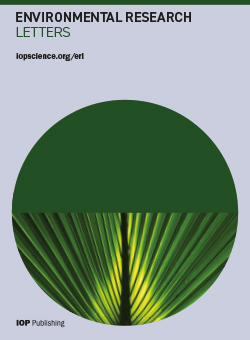法院能否弥合差距?公众对气候变化减缓政策中的经济不平等与代际不平等的看法
IF 5.6
2区 环境科学与生态学
Q1 ENVIRONMENTAL SCIENCES
引用次数: 0
摘要
气候变化和大多数气候政策影响并强化了不同形式的不平等。例如,旨在通过提高造成碳排放的商品和服务的价格来改变消费者行为的气候变化政策,往往会给低收入者带来过高的负担(就经济成本而言)。因此,这些措施要么会加剧现有的收入不平等,要么会导致新的收入不平等。与此同时,不参与气候减缓政策将产生其他有害的社会成本:如果不采取任何措施,后代将不得不承担气候变化的经济负担和有害后果。在本文中,我们研究了公民因气候减缓政策(碳税)而面临的直接经济不平等与子孙后代将经历的长期代际不平等之间的权衡关系。我们以德国为背景,研究了这两种不平等与气候变化减缓政策的政策支持之间的关系。我们之所以对德国的案例特别感兴趣,是因为联邦宪法法院最近做出的一项裁决使我们能够检验让人们了解新的法律现实是否能够弥合经济不平等与代际不平等之间的差距。我们在 2022 年对德国公民(6319 人)进行了一次主体间调查实验,结果表明,眼前的经济问题压倒了未来的代际问题,总体而言,公民对该政策的支持度较低。然而,法院裁决的支持信号在一定程度上缓解了这种负面支持。本文章由计算机程序翻译,如有差异,请以英文原文为准。
Can the court bridge the gap? Public perception of economic vs. generational inequalities in climate change mitigation policies
Climate change and most climate policies affect and reinforce different forms of inequalities. For instance, climate change policies that aim to change consumer behavior by increasing the price tag of goods and services that cause carbon emissions often carry a disproportionately higher burden (in terms of financial cost) to those with lower incomes. They can thereby either exacerbate existing income inequalities or contribute to generating new ones. Meanwhile, refraining from engaging with climate mitigation policies will incur other detrimental societal costs: the financial burden and the harmful consequences of climate change that future generations will have to bear if nothing is done. In this paper, we examine how the immediate economic inequality citizens face from climate mitigation policies (regarding carbon taxation) weighs against the long-term generational inequalities future generations will experience. We study how both types of inequality relate to policy support for climate change mitigation policies in the context of Germany. The German case is of special interest because a recent court ruling of the Federal Constitutional Court allows us to test whether making people aware of a new legal reality can bridge the gap between the economic and generational inequality. Our findings using a between-subjects survey experiment fielded among German citizens (N = 6,319) in 2022 show that immediate economic concerns trump future generational concerns, generally making citizens less supportive of the policy. This negative support is however somewhat mitigated by the supportive signal from the court ruling.
求助全文
通过发布文献求助,成功后即可免费获取论文全文。
去求助
来源期刊

Environmental Research Letters
环境科学-环境科学
CiteScore
11.90
自引率
4.50%
发文量
763
审稿时长
4.3 months
期刊介绍:
Environmental Research Letters (ERL) is a high-impact, open-access journal intended to be the meeting place of the research and policy communities concerned with environmental change and management.
The journal''s coverage reflects the increasingly interdisciplinary nature of environmental science, recognizing the wide-ranging contributions to the development of methods, tools and evaluation strategies relevant to the field. Submissions from across all components of the Earth system, i.e. land, atmosphere, cryosphere, biosphere and hydrosphere, and exchanges between these components are welcome.
 求助内容:
求助内容: 应助结果提醒方式:
应助结果提醒方式:


